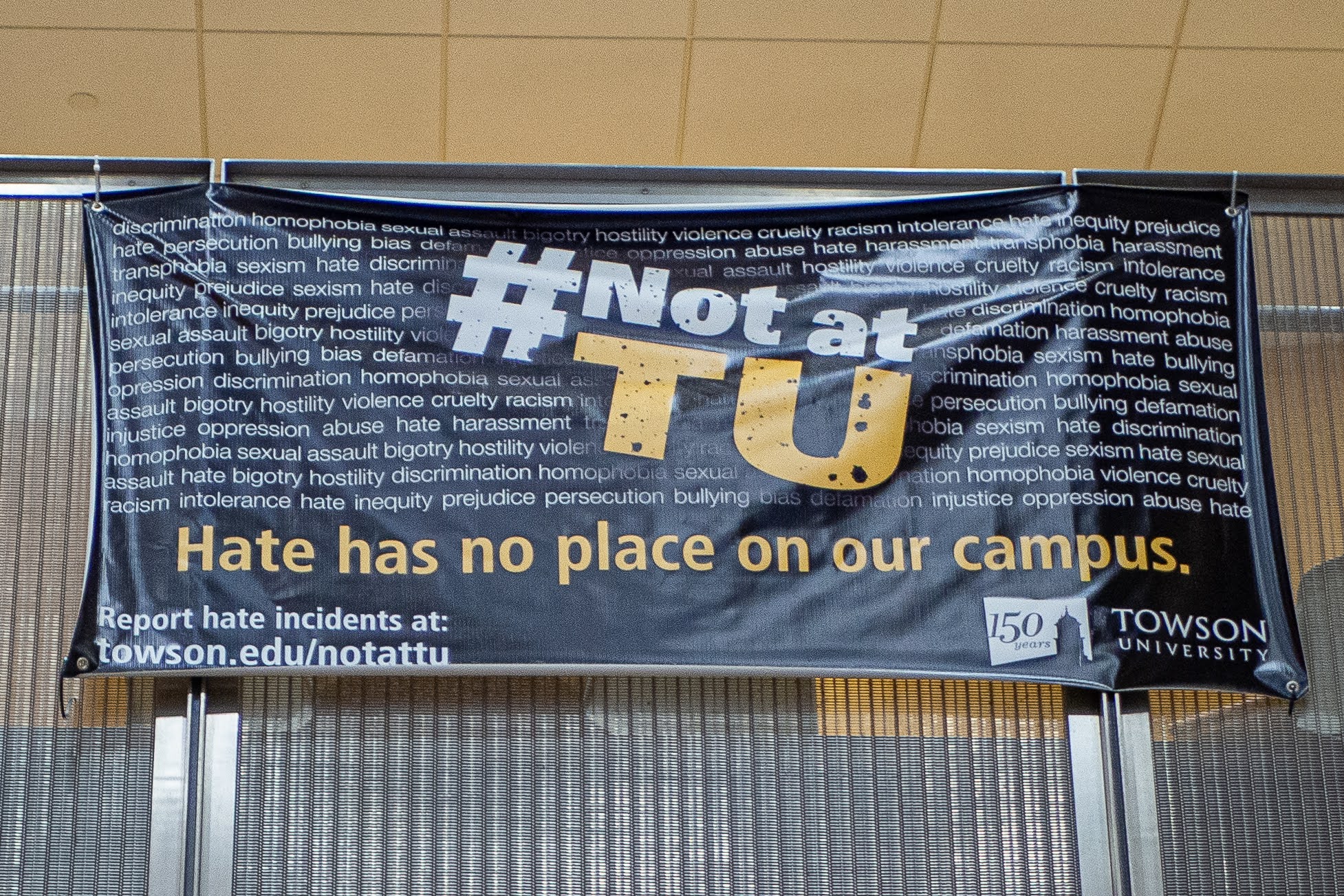
Towson students grapple with federal push against DEI
By Jayden Gonsalves, Contributing Writer
Amid a push from the federal government to end diversity, equity and inclusion initiatives known as DEI, students at Towson University, which is a minority-majority college, worry over the impact it could have on their college.
During his 2024 presidential campaign, U.S. President Donald Trump promised to get rid of DEI initiatives. He delivered on the campaign promise by signing the “Restoring Merit-Based Hiring and Promotions Across the Federal Government” executive order on his second day in office. The order called DEI illegal and discriminatory.
“We will terminate every diversity, equity and inclusion program across the entire federal government,” Trump wrote in an accompanying fact sheet.
Following the order, the U.S. Department of Education issued a “Dear Colleague” letter which broadly interpreted a 2023 Supreme Court decision that doesn’t allow race to be factored into college admission decisions, to apply to all diversity initiatives in higher education. The Education Department later issued clarifications to the letter, where it said events like Black History Month and International Holocaust Remembrance Day weren’t illegal so long as they were open to all students.
Towson President Mark Ginsberg said during a public meeting in April that Towson and the University System of Maryland would not be participating in “anticipatory compliance” with federal policy changes of several kinds, including erasing diversity initiatives, while several lawsuits continue to play out over DEI’s place in colleges.
“We may be forced to do some things in the future, but right now the chancellor [of the University System of Maryland] and the other presidents are aligned,” Ginsberg said.
The push to end DEI came to Towson when the Education Department opened an investigation into Towson and 44 other colleges in March for alleged civil rights violations for partnering with The PhD Project.
Towson responded to a set of questions for the investigation in April. It’s waiting to see if it will need to provide any more information, according to Ginsberg.
Towson’s Office of Institutional Inclusion and Equity, which houses DEI staff, is still active. All DEI related language is still on its website and no diversity related events have been cancelled. Still, the investigation has inflicted a sense of uncertainty among Towson students. Edmund Rhynes, Towson’s Student Government Association president, wanted to create a resolution to address that.
“I think it’s very necessary, especially in public universities like ours,” Rhynes said. “It has been difficult trying to pinpoint a specific resolution, but we are a resource always available to connect students to the correct channels and avenues. The mission of SGA won’t change.”
The Black Student Union, known as BSU, prioritizes the well-being and educational success of Black students on campus, working closely with the administration and SGA.
“We value a space where all students have equal opportunities, and DEI programs such as The PhD Project have helped make that possible,” BSU President Anya Womack said.
Towson has over 70 racial, religious, gender and disability related identity student organizations on campus not including Greek organizations.
The Lunch Table is a club that aims to have conversations about controversial topics not easily discussed in the classroom.
“I feel disappointed, we see how hard the diversity advocates work on this campus,” Lunch Table President Monty Melvin Jr. said. “I wonder how minority clubs like ours will be effected.”
As the civil rights investigation progresses, various campus groups are growing increasingly concerned about its impact, like the president of Towson’s chapter of the National Association for the Advancement of Colored People.
“The removal of DEI programs feels limiting and oppressive for students from diverse backgrounds,” President Courtney Montgomery said. “We can fight back by keeping the conversation public. Not everyone follows the news, so it’s crucial that we educate one another and ensure our voices are heard.”
White students still make up the largest singular racial group at Towson at 40%, but it is no longer considered a Predominantly White Institution, or PWI. Towson University is a minority-majority campus, with over 60% of the university made up of racial and ethnic minority groups.
Kaliya Mackey is the secretary for Towson’s National Student Data Corps, which gives students from under-served communities the chance to learn data science.
“I never considered Towson to be a PWI, because of its welcoming environment, for all demographics and nationalities,” Mackey said. “Which is likely the reason why many of us belonging to minority communities enrolled to begin with.”
Among Towson University’s dozens of identity-based groups and organizations, half of them are specific to certain ethnicities.
“We still have hope and plan to stay strong,” Womack said. “BSU has been around for over 50 years, the members before us had to deal with much worse and made it through. We plan to be here for 50 more.”
